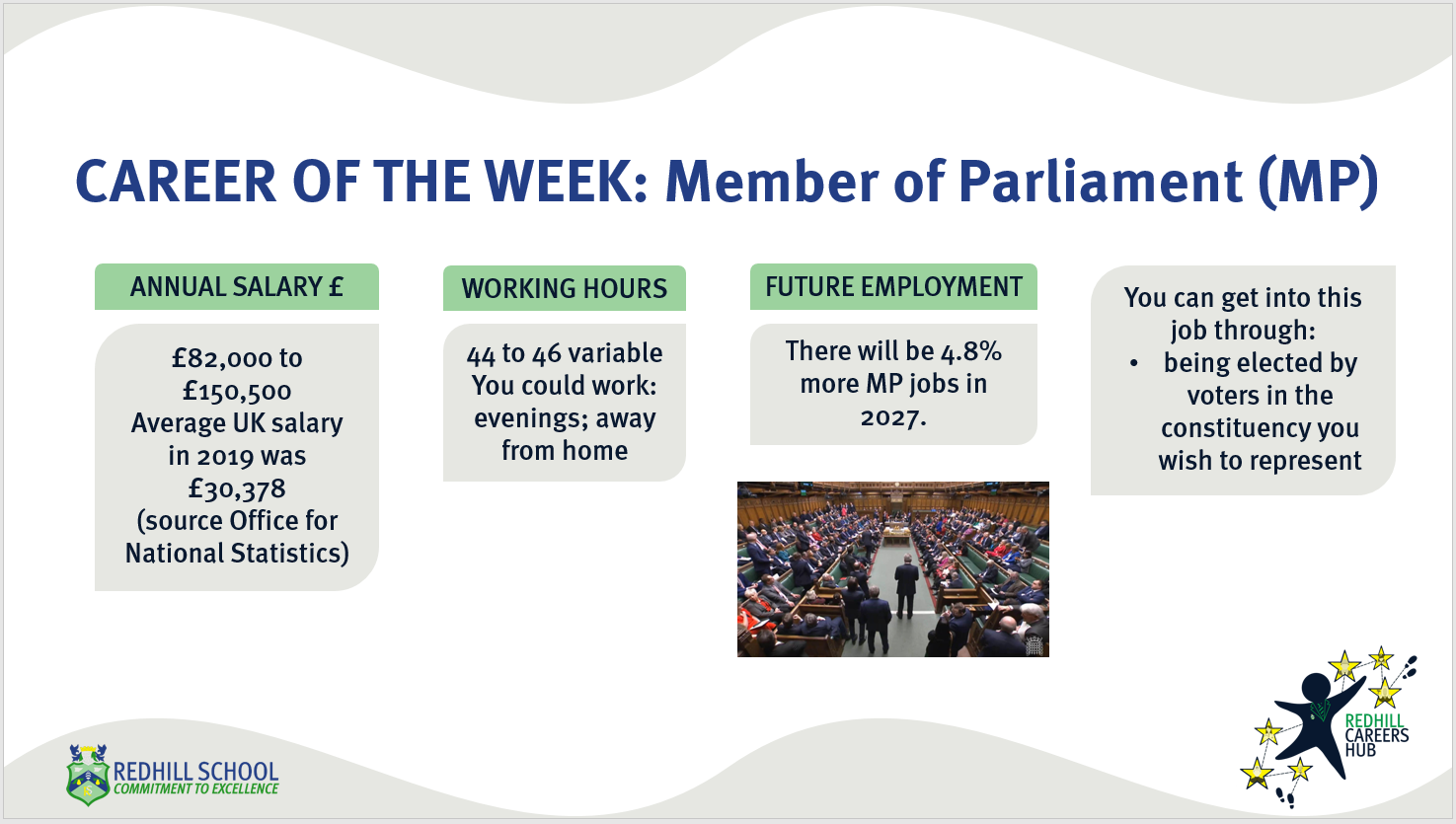Career of the week: Member of Parliament
Day to day tasks
You'll attend sessions in Parliament to:
vote on new laws and policies
raise constituents’ concerns with relevant ministers
debate issues and ask questions
Outside Parliament, you'll:
talk to businesses and schools about local, national and international issues
speak to the media
attend meetings and conferences
hold surgeries and advice sessions in your constituency
Working environment
Your working environment may be physically and emotionally demanding and you may spend nights away from home.You can get into this job through:
being elected by voters in the constituency you wish to represent
Volunteering and work experience
Most people show their commitment through campaigning and volunteering for their party.
You can get other useful experience from:
serving as a local councillor
being active in a trade union
being involved in student politics
working as a researcher or caseworker for an existing MP
Other routes
You become a Member of Parliament (MP) by being elected in a by-election or general election. You can stand for election as a member of a political party or as an independent candidate.
Each political party has its own selection procedure. Normally, you must get the support of your party's nominating officer before you can become the prospective candidate.
As a candidate during an election, you'll be expected to campaign in public and online, attend meetings, make speeches and talk to the local media. You'll find it helpful to have some experience in one or more of these areas.
Requirements and restrictions
You'll need to:
To stand for election, you'll need to be nominated by at least 10 electors from the constituency you wish to represent. You must also pay a £500 deposit. This is returned to you if you get more than 5% of the total votes cast in your constituency.
Certain people are not allowed to stand as an MP, for example someone convicted of electoral fraud. You can check with the Electoral Commission for more information about this.
be over 18 years of age
be a UK, Republic of Ireland or Commonwealth citizen
Career tips
You'll need a good understanding of local and national issues, and be up to date with current affairs.
The Houses of Parliament offer the following schemes to get involved:The Parliamentary Academy Scheme; Speaker's Parliamentary Placement Scheme; The House of Commons Apprenticeship Scheme; House of Lords Apprenticeship Scheme; Undergraduate Sandwich Student Placements
There is more information on these schemes from Parliamentary work placement and Apprenticeship Programme.

